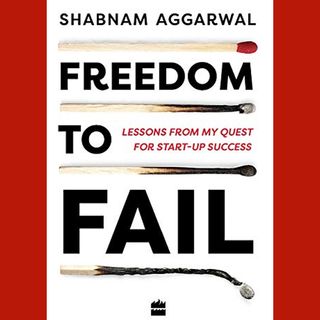Since the repeal of Section 377, corporates can no longer hide behind what Parmesh Shahani likes to refer to as their ‘fig leaf’ — LGBTQ+ inclusion is a must if companies want to attract and retain talent, tap into new markets, and grow their brands. If nothing else, it just makes good business sense.
For the past year, the Godrej India Culture Lab has been working on a project that specifically makes the case for corporate India to embrace the 4.9 lakh documented trans people in India, 92% of whom are still unable to participate in the formal economy, according to the National Human Rights Commission. This Thursday the culmination of the project, a paper titled, ‘A Manifesto for Trans Inclusion in the Indian Workplace’ was presented by Shahani, head of Godrej India Culture Lab, with support from the Keshav Suri Foundation, Humsafar Trust, Periferry, TWEET Foundation, and Community Business.
The manifesto provides an incredibly comprehensive look at the history of trans people in Indian culture, examining the effects of landmark laws and judgements, like the legacy of the colonial Criminal Tribes Act that mandated the registration and surveillance of trans folks, which was only repealed in 1972, ensuring the socio-economic marginalization of the community; and the 2014 NALSA judgement that legally recognizes trans people’s right to self-identify their gender.
“My message to all the corporates sitting here is to stop treating trans people as CSR and PR activities.”
The paper makes a clear case for LGBTQ+ inclusive policies, through very tangible numbers that prove that companies going rainbow reap the rewards — like the $200 billion spending power of the queer population in India, the 72% of allies who are more likely to work for a company that supports their LGBTQ+ employees, or the stock prices of VIP Industries that skyrocketed right around the time Radhika Piramal came out.
On the other hand, Shahani points out that homophobia actually costs Indian companies money. To be specific, $32 billion is the conservative estimate, according to a World Bank report. That’s about 1.7% of India’s GDP. Inclusive policies in corporates foster innovation and growth, and at a time when consumers are tech savvy, companies simply paying lip service will be called out for their hypocrisy.
However, the focus on including trans people in the workforce is crucial, because corporates need to understand the specific obstacles that they face. Trans folks are one of the most high risk groups in India, who have had to negotiate decades of stigma and discrimination. So the second half of the manifesto acts as a kind of how-to guide for companies to start adopting inclusive hiring strategies, sensitizing current employees, widening the scope of health insurance and medical benefits, rethinking restroom infrastructures, and implementing policies like gender neutral adoption leave and equal opportunity benefits.
“My message to all the corporates sitting here is to stop treating trans people as CSR and PR activities. See them beyond figures in your companies,” said Pearl Daruwalla, advocacy officer at the Humsafar Trust and Project Transcend, at the panel discussion that followed. The discussion was arguably the highlight of the event, after the rainbow colored pen drives that were handed out, containing the full manifesto. All the panelists have been involved in LGBTQ+ inclusion in some way – Daruwalla was joined by Abhina Aher, Associate Director of India HIV/AIDS Alliance and founder of Dancing Queens; Neelam Jain, CEO of Periferry; Anubhuti Banerjee, manager analytics & insights, Tata Steel; and Zainab Patel, trans activist and policy analyst, UNDP. The panelists pointed out the specific ways employing trans people can affect change, from the increased social acceptance for trans folks once they’re gainfully employed, to the brand benefits of being visibly inclusive.
“The private sector has no funding limitations – I would request all of you to walk the extra mile and positively discriminate. Put your trans employees in the front – let your customers and vendors know that you are trans inclusive,” said Patel. “I’ve always believed that the private sector has been the biggest change-maker globally. Now that FICCI and CII have taken on this challenge, we will see whether India Inc. can match up to their peers in inclusion.” And with the manifesto available to download, companies no longer have any excuses to not be #TransInclusive.




